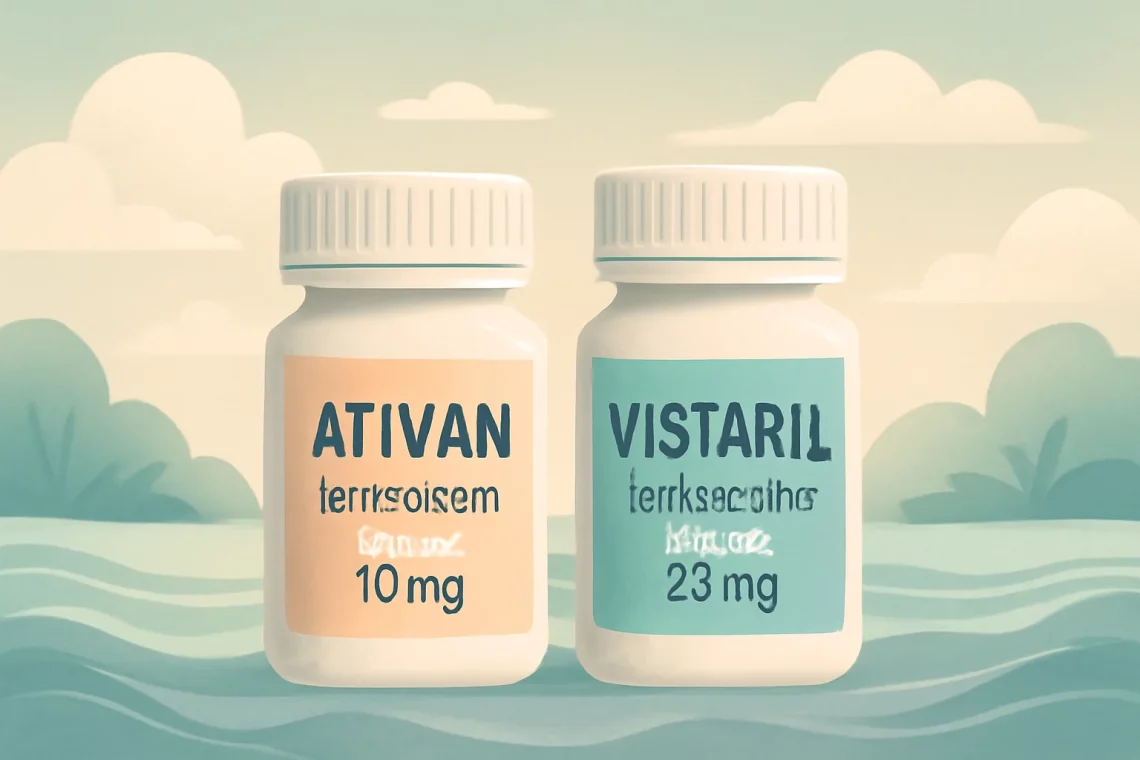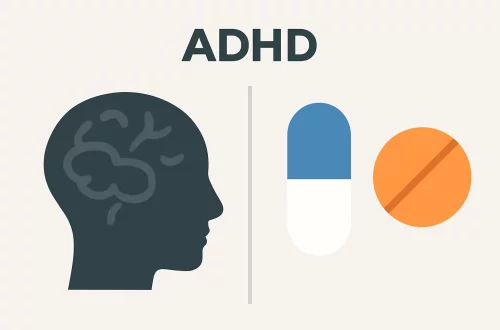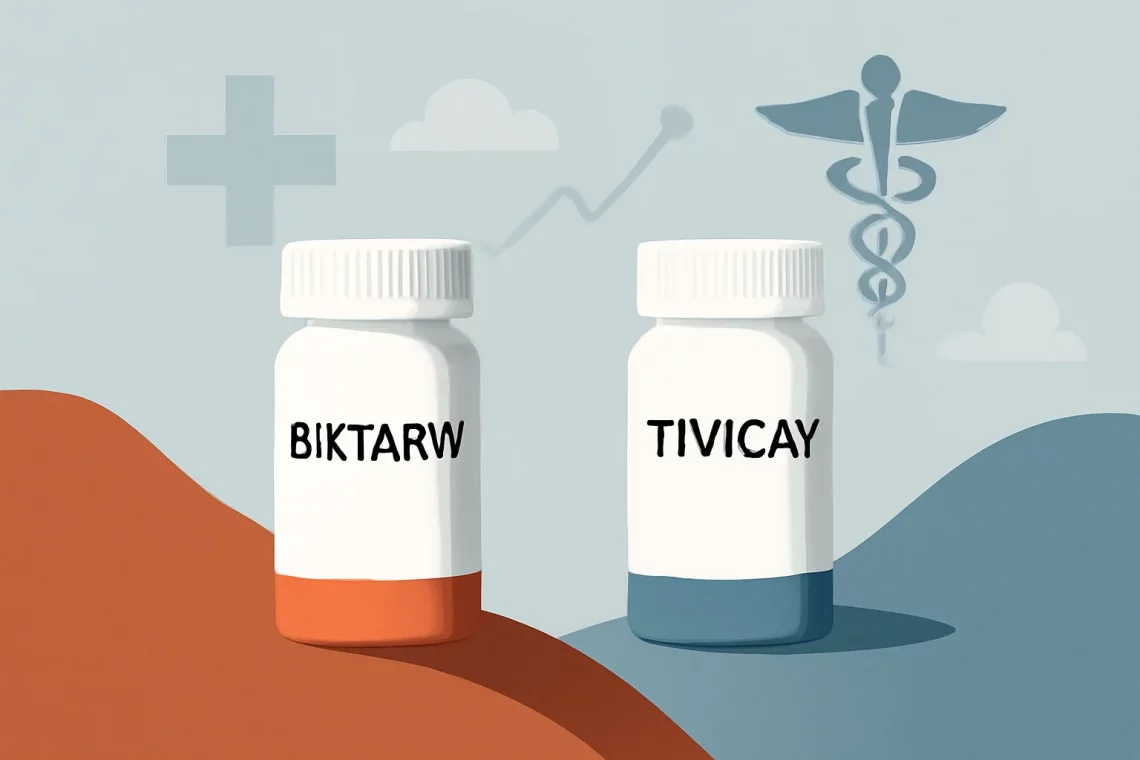-
Ativan vs Vistaril: A Comprehensive Comparison of Anxiety Medications
Ativan and Vistaril are two medications often used to manage anxiety and related conditions, but they belong to different drug classes and have distinct mechanisms of action. Understanding these differences is crucial for patients and healthcare providers when determining the most appropriate treatment option. Both medications have their unique benefits and potential side effects, which can influence the choice between them. Ativan, a brand name for lorazepam, is a benzodiazepine known for its sedative properties. It is commonly prescribed for anxiety disorders, insomnia, and even certain seizure disorders. Vistaril, or hydroxyzine, is an antihistamine with anxiolytic properties, often used for anxiety relief and as a sedative prior to surgery. By…
-
Vraylar vs Saphris: A Comprehensive Comparison of Two Antipsychotics
Vraylar and Saphris are two medications commonly prescribed for the treatment of mental health disorders, particularly those within the spectrum of schizophrenia and bipolar disorder. Mental health challenges are complex and multifaceted, often requiring a personalized approach to treatment. As more individuals seek effective solutions, understanding the available options becomes crucial. Both Vraylar and Saphris belong to a class of medications known as atypical antipsychotics. These drugs have been developed to address symptoms associated with severe mental health conditions while aiming to minimize side effects often associated with traditional antipsychotics. Patients and healthcare providers alike must consider various factors when choosing a treatment plan, including efficacy, side effects, and individual…
-
Benzonatate vs Delsym: A Comprehensive Comparison of Cough Remedies
Benzonatate and Delsym are two commonly used medications that help alleviate cough symptoms, yet they operate through different mechanisms and are prescribed for various conditions. Understanding the distinctions between these two medications can be crucial for individuals seeking relief from persistent coughing, whether caused by allergies, colds, or other respiratory issues. Coughing is a natural reflex that helps clear the airways of irritants, but when it becomes excessive or chronic, it can lead to discomfort and interfere with daily activities. With a plethora of over-the-counter and prescription options available, patients often find themselves confused about which treatment is most suitable for their specific needs. Benzonatate and Delsym are among the…
-
Guafenesin vs Acetylcysteine: Which Mucolytic is Right for You?
Guafenesin and acetylcysteine are two substances often discussed in the context of respiratory health. Both are utilized for their mucolytic properties, aiding in the clearance of mucus from the airways. Understanding how these compounds function and their respective roles in treating conditions like chronic bronchitis, asthma, or cystic fibrosis can be pivotal for patients seeking relief from respiratory discomfort. Guafenesin is primarily known as an expectorant. By loosening phlegm and thinning bronchial secretions, it facilitates easier breathing and cough relief. On the other hand, acetylcysteine operates as a mucolytic agent, breaking down the structure of mucus, thereby enhancing its clearance from the respiratory tract. While both serve similar purposes, their…
-
Lyrica vs Nortriptyline: Comparing Their Uses and Effectiveness
The management of chronic pain and various mental health conditions often involves the use of medications that can significantly affect a patient’s quality of life. Among these medications, Lyrica (pregabalin) and Nortriptyline are two prominent choices that serve distinct purposes. While both drugs can alleviate certain symptoms, their mechanisms of action, side effects, and appropriate use vary widely, making it essential for patients and healthcare providers to understand their differences and similarities. Lyrica is primarily used to treat neuropathic pain, fibromyalgia, and certain types of seizures. It works by modulating the release of neurotransmitters and inhibiting certain calcium channels in the nervous system. On the other hand, Nortriptyline is a…
-
Escitalopram vs Fluoxetine: Which Antidepressant Is Right for You?
Escitalopram and fluoxetine are two widely prescribed selective serotonin reuptake inhibitors (SSRIs) used primarily to treat depression and anxiety disorders. Both medications have gained popularity due to their efficacy and generally favorable side effect profiles compared to older antidepressants. The choice between these two drugs often hinges on various factors, including the specific diagnosis, individual patient history, and potential side effects. With mental health issues on the rise globally, understanding the nuances of these medications is becoming increasingly important for both healthcare providers and patients alike. As patients seek effective treatment options, it’s essential to consider not only the mechanisms of action but also the differences in efficacy, side effects,…
-
Tramadol vs Ultram: Understanding Their Differences and Uses
Tramadol and Ultram are two terms that often evoke confusion among patients and healthcare providers alike. At first glance, one may wonder if they are distinct medications or perhaps different names for the same drug. The truth is that both terms are intricately linked, yet they represent different aspects of pain management strategies. Understanding the nuances between these terms is crucial for anyone navigating the world of pain relief medications. Tramadol is a prescription medication primarily used to treat moderate to moderately severe pain. It works by altering the way the brain and nervous system respond to pain. On the other hand, Ultram is a brand name for tramadol, and…
-
Insulin Lispro vs Insulin Glulisine: Which is Right for You?
Insulin is a crucial hormone produced by the pancreas that plays a significant role in regulating blood sugar levels. For individuals with diabetes, maintaining optimal insulin levels is essential for overall health and well-being. Among the various types of insulin available, rapid-acting insulins such as Insulin Lispro and Insulin Glulisine are commonly prescribed to help manage blood sugar spikes after meals. These insulins are designed to act quickly, allowing for more flexible meal planning and improved glycemic control. The importance of understanding the differences between these two insulins cannot be overstated. Both Insulin Lispro and Insulin Glulisine have unique properties that can influence their effectiveness, duration of action, and the…
-
Zolpidem vs Eszopiclone: Which Sleep Aid is Right for You?
Zolpidem and eszopiclone are two commonly prescribed medications used to treat sleep disorders, particularly insomnia. As sleep-related issues continue to affect millions of people worldwide, understanding the differences, benefits, and drawbacks of these medications becomes increasingly important. Both drugs belong to a class of medications known as sedative-hypnotics, which work by influencing neurotransmitters in the brain to promote relaxation and sleep. However, despite their similar purposes, zolpidem and eszopiclone differ significantly in their mechanisms of action, side effects, and ideal usage scenarios. The growing prevalence of sleep disorders highlights the need for effective treatment options. Chronic insomnia can lead to a myriad of health issues, including anxiety, depression, and cognitive…
-
Biktarvy vs Tivicay: Comparing Two Leading HIV Treatment Options
In recent years, the landscape of HIV treatment has evolved significantly, leading to the development of various antiretroviral therapies. Among these, Biktarvy and Tivicay have emerged as two prominent options for managing the virus effectively. As individuals living with HIV seek to understand their treatment options, it is crucial to explore the distinctions, efficacy, and overall impact of these medications. Both Biktarvy and Tivicay are designed to help individuals maintain viral suppression and improve their quality of life. They belong to different classes of antiretroviral drugs, which means their mechanisms of action, dosing regimens, and potential side effects can vary significantly. Understanding these differences can empower patients and healthcare providers…







































